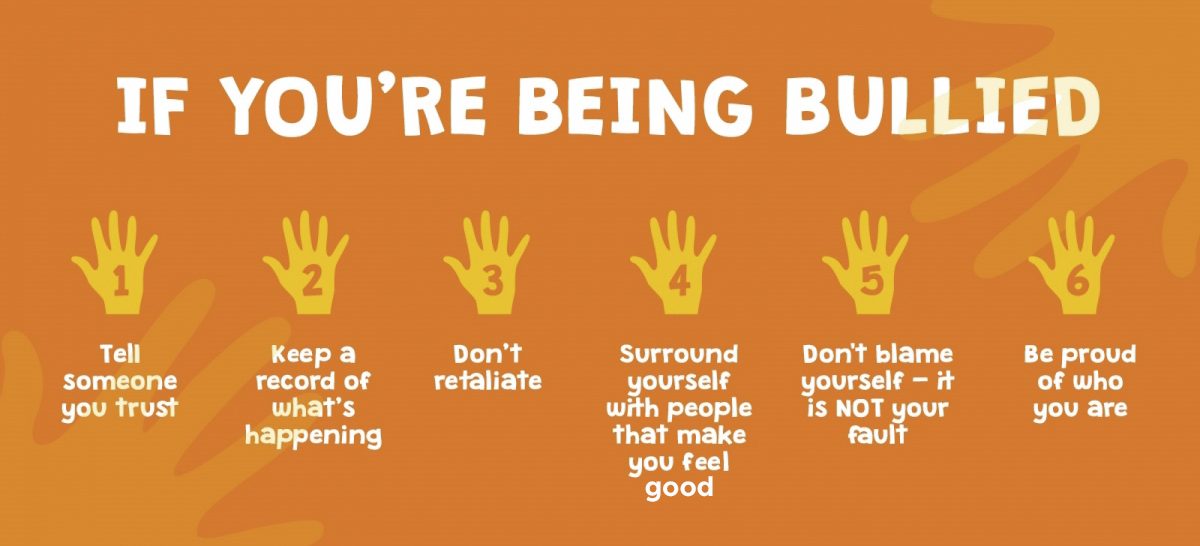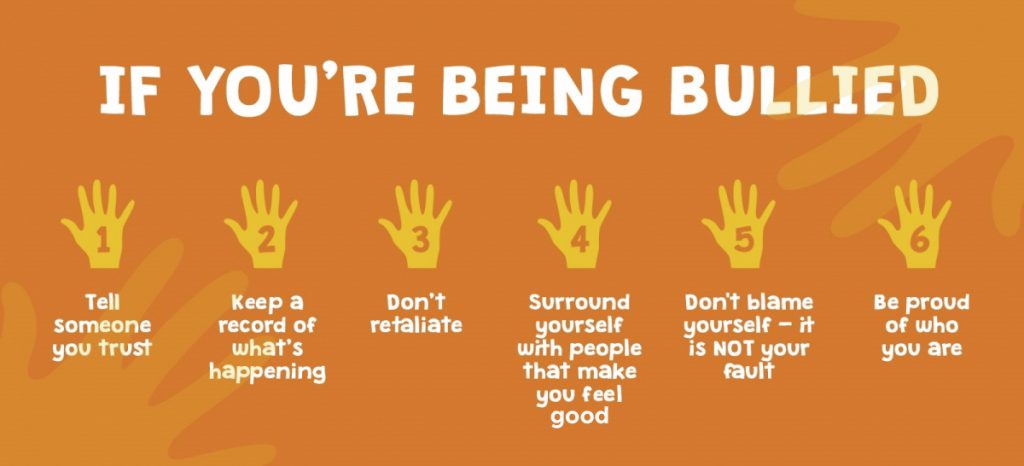
Anti-Bullying Week and how you can help
Anti-Bullying Week and how you can help
With that in mind, here are their aims to help support young people:
empower children and young people to celebrate what makes them, and others, unique
help children and young people understand how important it is that every child feels valued and included in school, be able to be themselves, without fear of bullying
encourage parents and carers to work with their school and talk to their children about bullying, difference and equality
enable teachers and other children’s workforce professionals to celebrate what makes us ‘all different, all equal’ and celebrate difference and equality. Encourage them to take individual and collective action to prevent bullying, creating safe environments where children can be themselves.
What to do if you are being bullied
If you are being bullied don’t keep it bottled up. It’s really important that you talk to someone you trust about what’s happening. If you don’t want to do that you can always call Childline on 0800 11 11 or visit www.childline.org.uk.
If you’re being bullied online make sure you take screenshots of photos, save videos, texts and emails that can be passed onto someone you trust. It’s equally important to write down a record of what’s happened when, where and who is involved. This helps the person you tell get a clear picture of the situation.
Parents – What to do if you’re worried your child is being bullied
If you notice some changes in your child’s behaviour, such as they have become withdrawn or alternatively become aggressive, then you may well be concerned that bullying is a factor.
Here are some signs to look out for. They may not always be due to bullying but it is important not to ignore them:
Feeling anxious
Feeling unwell
Not wanting to go to school
Changes in sleeping and eating habits
Damaged or broken belongings
Becoming obsessive
Self-harming
Doing less well with their schoolwork
How to support your child
Speak to your child and reassure them that it isn’t their fault. Ask them what they would find helpful and tell them you will support them moving forward.
Talk with your child’s teacher and school to discuss your concerns and agree upon a plan to help support your child together.
Tutors – what to do if you think a student is being bullied
If you think a student is displaying any of the signs above please don’t hesitate to give us a call on 020 7584 5355 and we will discuss the situation. We can then establish if you would be comfortable talking about it with your student’s parents or guardians. If not, we will talk through your concerns on your behalf with them.
Finally, if a student does confide in you that they are being bullied, please do not agree to keep it a secret. The situation needs to be addressed as soon as possible in order to begin supporting your student in the right way.
Click here to book one of their tutors



